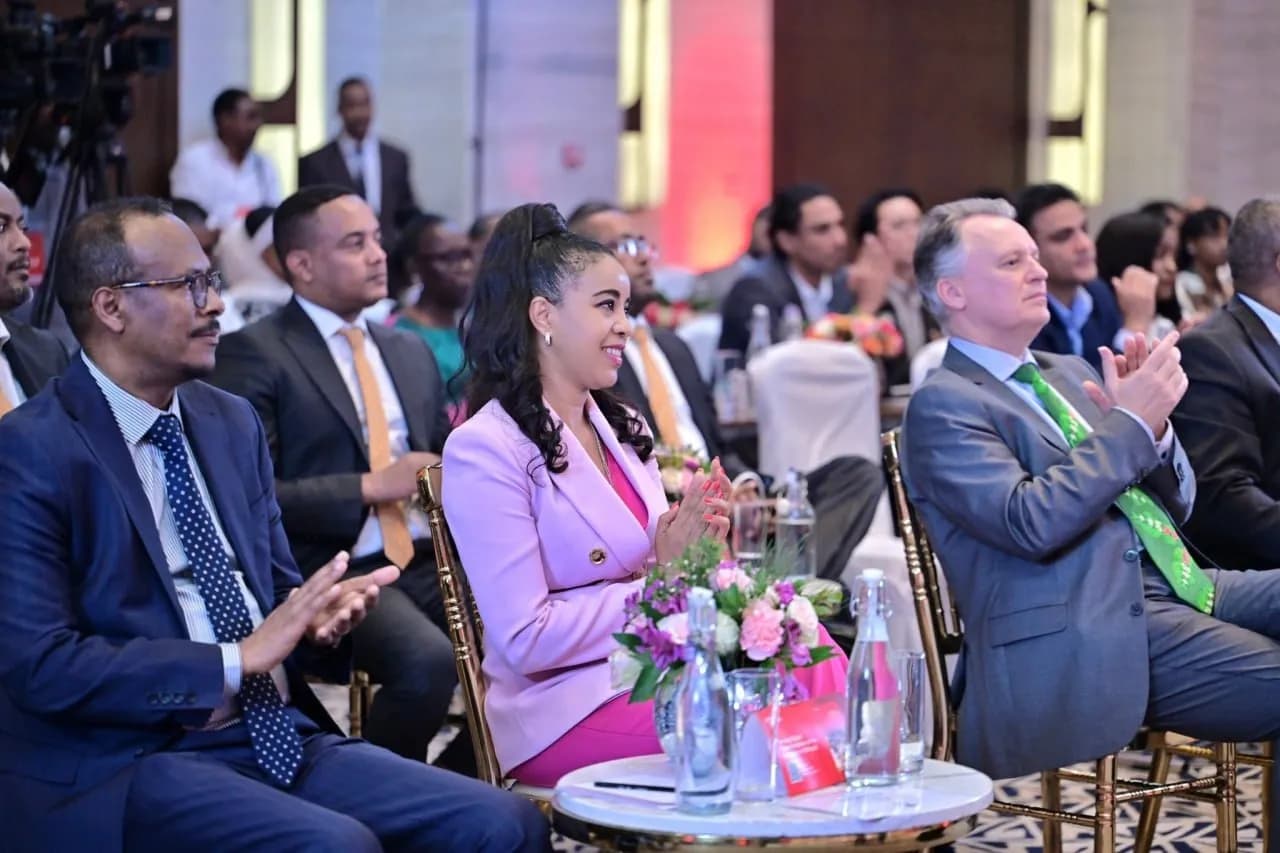Progress for 0 ad
Progress for 1 ad
Progress for 2 ad
Progress for 3 ad


Munir Shemsu
Addis Ababa, Ethiopia

Ethiopia’s ambitious digital transformation risks losing momentum unless regulators act decisively to enforce fair competition, a new World Bank report has warned. The assessment comes as Safaricom Ethiopia battles to close the gap with state-owned incumbent Ethio telecom, amid signs of anti-competitive practices that could stall progress.
The Ethiopia Telecom Market Assessment, co-prepared by Baidy Sy of the World Bank’s Digital Vice Presidency at the request of the Ethiopian Communications Authority (ECA), was disclosed two weeks ago.
The study was further initiated after potential investors in Ethiopia’s third full-service telecom license voiced concerns about the lack of fair competition and infrastructure sharing, conditions they considered critical for sustainable investment.
Ethiopia’s telecom sector, once a state monopoly, has exploded with growth over the past seven years, nearly doubling mobile subscriptions to 87.6 million. Ethio telecom’s mobile money service, telebirr, has signed up 53 million users in just three years, transforming everyday payments.
Reforms in 2019 broke Ethio Telecom’s grip by creating ECA, paving the way for competition. Safaricom Ethiopia entered in 2022 after paying a total of $1 billion for its licenses, investing over $3 billion, now amassing over 7 million subscribers. Fixed broadband also got a lift in 2024 when Websprix became the first private ISP, tapping into a vast national fiber network.
But beneath the metrics lies a market teetering on imbalance, warns the WB. Ethio telecom, still 99% state-owned, entered the game with a built-in edge: no hefty license fee, unlike Safaricom’s payout. It dominates six market segments with “significant market power,” regulators say, yet prices voice calls below the cost of mobile termination rates, forcing Safaricom to absorb losses on every call to Ethio customers.
The report flags darker clouds: potential cross-subsidies from Ethio’s mobile money revenue propping up telecom services; lax enforcement of dominance rules; and, most alarmingly, Ethio’s recent blocking of Safaricom’s apps, including M-Pesa, from its network.
A relatively recent, but perhaps even more alarming, example of possible abuse of internet ecosystem resources is the possible blocking of some IP addresses, such as for users of Safaricom’s mPesa for all app.
“These asymmetries jeopardize the long-term viability of the sector,” the report warns, “which could unwind all the progress made to date.”
Revenue figures echo a similar story. Despite boasting more than 53 million users, telebirr's contribution to Ethio Telecom's earnings over the past year was just 2.5% of the total with revenues from infrastructure sharing being 0.2% higher.
Attempts to broaden competition beyond Safaricom have also faltered. A 2021 auction for a third license attracted only one viable bid, and follow-up efforts fizzled. Privatization plans to sell 40 percent of Ethio telecom to foreign investors stalled, while a domestic public offering of 10 percent of shares netted just 1 percent uptake.
Ethiopia’s average revenue per user (ARPU) remains one of the lowest in Africa, at around US$1 per month, reducing scope for fresh network investment.
“Compared to other African countries, Ethiopia still lags in 4G coverage, broadband speed, and fixed internet penetration, particularly in rural and remote areas, though the gap has narrowed considerably since 2018. These gaps will not be bridged without fresh investment, and currently neither operator is in a position to commit to this.” Reads the report.
This is particularly concerning, as Ethiopia needs 10,000–15,000 more towers to match regional peers.
Another important indicator highlighted in the report is the number of unique subscribers. Between 2018 and 2024, mobile subscriptions in Ethiopia nearly doubled, rising from 44.2 million to 87.6 million, while unique mobile broadband subscriptions reached 54.1 million, or 41 percent of the population.
The report also points to data usage as a clear sign of the benefits of competition. Safaricom Ethiopia, for example, reported average monthly consumption of 6.3 GB in its 1H FY25 results, compared with just 3.8 GB in its home market of Kenya. Once among the most expensive data economies in Africa, Ethiopia has now become one of the cheapest, a tangible gain from market liberalization.
Ethiopia’s leaders have turned to digital reforms as a way to spur jobs and inclusion, hoping to use technology to leapfrog poverty. But the World Bank report, drawing on consultant studies and a January stakeholder workshop, warns that the current approach needs a reset. It calls for cost-based pricing in infrastructure sharing, stronger rules to curb dominance abuses, and greater independence for Ethio telecom, particularly in digital payments where state favoritism could stifle competition. “A dynamic and diverse digital ecosystem is yet to emerge,” the report concludes.
To get reforms back on track, the World Bank sets out a blueprint. At its core is the need to loosen government control over Ethio telecom by installing an independent board, easing privatization to allow majority private ownership, and aligning regulatory fees with those paid by Safaricom. This, the report argues, would open the door for a third operator to enter the market. It also calls for cost-based pricing of fiber and towers, new licenses for wholesale infrastructure firms, and binding agreements to ensure fair interconnection. Cutting rural taxes could further attract billions in private investment.
The report also stresses the importance of tackling Ethio telecom’s market dominance by auditing termination rates, banning cross-subsidies from telebirr to voice services, and ending practices such as blocking rival apps. In digital finance, it recommends mandatory interoperability between platforms, requirements for government agencies to accept all mobile money services, and stricter safeguards against favoritism.
👏
😂
❤️
😲
😠

Munir Shemsu
Munir S. Mohammed is a journalist, writer, and researcher based in Ethiopia. He has a background in Economics and his interest's span technology, education, finance, and capital markets. Munir is currently the Editor-in-Chief at Shega Media and a contributor to the Shega Insights team.
Your Email Address Will Not Be Published. Required Fields Are Marked *